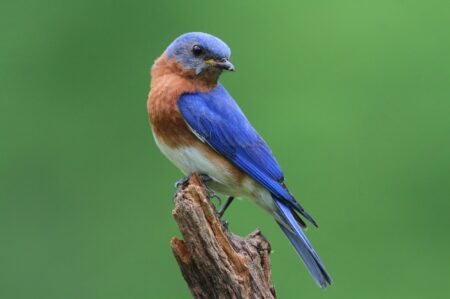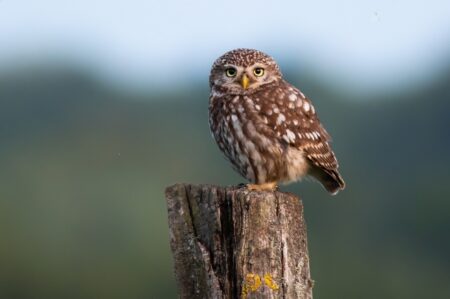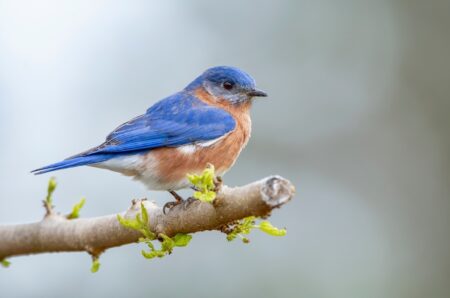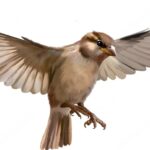How to Take Care of A Bird: The Ultimate Guide
Taking care of a bird is a responsibility that requires knowledge, patience, and dedication. Birds are unique and beautiful creatures that can make wonderful pets, but they require special care to ensure their health and well-being.
If you are considering adding a feathered friend to your family, or you already have one, it is important to know how to properly care for them. In this guide, we will discuss the essential steps to take care of a bird.
What do birds need?
Before getting a bird, it is important to consider the following factors:
- Housing: Birds need a spacious and safe place to live, whether it is a cage, aviary, or flight cage. It should be large enough for the bird to move around, stretch its wings, and have plenty of perches and toys to keep it entertained.
- Diet: A well-balanced diet is crucial for a bird’s health. This may include seeds, pellets, fresh fruits and vegetables, and occasional treats like nuts and whole grains. Each bird species has specific dietary needs, so it is important to do research on the specific needs of your bird.
- Exercise: Birds are active creatures and need regular exercise to stay healthy and happy. This can be achieved by providing a spacious cage with enough room for the bird to move and fly, as well as providing them with interactive toys and perches to keep them physically stimulated.
- Socialization: Birds are social creatures and need companionship. If you are not able to spend a lot of time with your bird, consider getting a pair of the same species so they can keep each other company.
- Veterinary care: Like any other pet, birds need regular check-ups and veterinary care to ensure their health is in good condition. It is important to find a veterinarian who specializes in avian care and to take your bird for a check-up at least once a year.
How to Take Care of A Bird: The Ultimate Guide
Taking care of a bird involves several aspects to ensure the health and well-being of your feathered friend. Here are some important steps to follow:
- Proper housing: The first and foremost thing to consider is providing a suitable living space for your bird. The cage should be spacious enough for the bird to move around and stretch its wings comfortably. It should also be made of safe, non-toxic materials.
- Cage cleaning: It is important to keep the cage clean and hygienic to prevent the buildup of bacteria and other harmful microorganisms. Regularly clean the food and water bowls, as well as the perches and toys, to prevent the growth of bacteria and fungi.
- Diet: A balanced and nutritious diet is crucial for the overall health of a bird. Consult a veterinarian or do some research on the specific dietary needs of your bird species. Offer a variety of fresh fruits, vegetables, seeds, and pellets to provide essential nutrients.
- Freshwater: Make sure to provide your bird with fresh and clean water every day. Change the water at least once a day and clean the water dishes to prevent the growth of harmful bacteria.
- Mental stimulation: Birds are intelligent and social creatures, and they need mental stimulation to stay happy and healthy. Provide them with toys, perches, and playtime outside of their cage to keep them entertained and prevent boredom.
- Grooming: Regular grooming is essential for maintaining the health of your bird. This includes trimming their nails and wings, as well as cleaning their feathers. Consult a veterinarian on the correct techniques for grooming your specific bird species.
- Veterinary care: Just like any other pet, birds also require regular check-ups and vet visits to ensure their health. It is important to have a trusted avian veterinarian who can provide proper care and treatment when needed.
- Social interaction: Birds are social animals and need interaction with their owners to thrive. Spend time with your birds daily, talking, playing, and bonding with them. This will also help in creating a strong bond between you and your feathered friend.
- Monitor behavior and health: Pay attention to your bird’s behavior and appearance. Any changes in behavior, appetite, or appearance could be a sign of underlying health issues. Consult a veterinarian if you notice anything unusual.
- Safety and environment: Birds are sensitive to their environment, and it is important to provide a safe and comfortable space for them. Keep them away from drafty areas, toxic household products, and other potential hazards.
How to Take Care of A Bird That is Injured
- Assess the situation: The first step in taking care of an injured bird is to assess the situation. Is the bird in immediate danger? Is it bleeding or can’t move? Is it a wild bird or a pet bird? This will help you decide on the next course of action.
- Handle with care: If the bird is not in immediate danger, carefully approach it and pick it up with a towel or cloth. Wild birds can feel threatened by humans, so it’s important to handle them gently to avoid causing them more stress. If the bird is bleeding or can’t move, try wrapping it in a towel to keep it calm and immobilized.
- Provide a safe and warm environment: Once you have the bird in your care, it’s important to provide it with a safe and warm environment. Keep it in a quiet and dark place, away from pets and children. You can also place a heating pad set on low under a box with a towel on top to keep the bird warm.
- Contact a wildlife rehabilitator: If the bird is a wild bird, it’s best to contact a wildlife rehabilitator as soon as possible. They are trained professionals who can assess the bird’s injuries and provide proper care. They also have the necessary permits to care for wild birds.
- Consult a veterinarian: If the bird is a pet, it’s important to consult a veterinarian for proper treatment. They can assess the bird’s injuries and provide medications or other treatments. It’s important to mention any details about the bird’s diet, behavior, and living conditions when seeking veterinary care.
- Keep the bird hydrated: Whether the bird is a wild bird or a pet, it’s important to keep it hydrated. You can offer water in a shallow dish or using a syringe (without the needle) if the bird is unable to drink on its own.
- Feed the bird: Depending on the situation, the bird may or may not be able to eat on its own. If it can eat on its own, provide a healthy and balanced diet for the bird. If the bird is unable to eat, consult a wildlife rehabilitator or veterinarian for guidance on how to safely feed the bird.
- Monitor and observe: While caring for an injured bird, it’s important to monitor its condition and behavior closely. Note any changes in behavior, appetite, or physical appearance and report them to a wildlife rehabilitator or veterinarian.
- Release or provide long-term care: Depending on the severity of the bird’s injuries, it may need to be released back into the wild or provided with long-term care. If it can be released, contact a wildlife rehabilitator for assistance. If it needs long-term care, continue to provide proper care or consult a veterinarian for guidance.
- Protect other birds: Injured birds can be carriers of diseases, so it’s important to protect other birds from potential exposure. Wash your hands after handling an injured bird and disinfect any used materials before using them again.
SEE ALSO: What Do Birds Eat in The Winter?
How to Take Care of A Wild Bird
- Provide food and water: The first thing to do when taking care of a wild bird is to provide food and water. Wild birds need a varied diet including seeds, nuts, and insects. Make sure to offer a variety of food types to meet the nutritional needs of different bird species. Clean, fresh water should also be available at all times.
- Create a safe environment: Birds are susceptible to predators, so it’s important to create a safe environment for them. Place feeders and water sources in areas that are sheltered from predators, such as near trees or bushes. Keep cats indoors and make sure any pets are supervised when outdoors.
- Keep feeders and bird baths clean: Dirty feeders and bird baths can spread disease and make birds sick. Clean feeders and bird baths regularly with a solution of water and vinegar, and make sure to rinse them thoroughly afterward.
- Provide shelter: Wild birds need shelter to protect them from the elements and predators. You can make natural shelters by leaving areas of your yard unmowed or by creating brush piles. You can also put up birdhouses for nesting and roosting.
- Don’t handle the bird: Wild birds can become stressed and may injure themselves if handled by humans. It’s best to admire them from a distance and avoid handling them.
- Be mindful of environmental hazards: Be aware of potential environmental hazards in your area, such as pesticides, chemicals, and other toxins. These can harm wild birds if they come into contact with them.
- Monitor for signs of sickness: Keep an eye on the birds in your yard and monitor for any signs of sickness. If a bird appears lethargic, has trouble breathing, or has unusual droppings, it may be sick and in need of help.
- Avoid feeding human food: While it may be tempting to share your snacks with wild birds, human food is not a healthy or appropriate diet for them. Stick to feeding them food that is specifically designed for wild birds.
- Learn about the birds in your area: Spend time researching the birds that live in your area and learn about their behaviors and needs. This will help you better understand how to care for them.
- Seek professional help if necessary: If you come across an injured or sick bird, it’s best to contact a local wildlife rehabilitation center for help. They have the expertise and resources to properly care for wild birds in need.
How to Take Care of A Bird As A Pet
- Provide a suitable living space: The first step in taking care of a bird as a pet is to provide it with a suitable living space. The size of the cage will depend on the type of bird you have, but it should be large enough for your bird to spread its wings and fly. The cage should also have perches, food and water bowls, and toys for mental stimulation.
- Proper nutrition: Your bird requires a balanced diet to maintain its health. Consult with your veterinarian or do research on the recommended diet for your specific bird species. In general, a diet for a pet bird should include a combination of high-quality seeds, fresh fruits and vegetables, and a small amount of protein such as cooked eggs or lean meat.
- Regular grooming: Birds require regular grooming to keep their feathers and beaks healthy. This includes trimming overgrown nails and beaks, bathing, and preening. You can use a commercial bird nail trimmer or bring your bird to a professional groomer.
- Socialization and mental stimulation: Birds are social creatures and require regular interaction with their owners. Spend time talking, playing, and training your bird to strengthen your bond. Providing toys and activities, such as puzzles and foraging toys, can also help keep your bird mentally stimulated.
- Veterinary care: Just like any other pet, birds require regular veterinary check-ups to ensure they are in good health. Find an avian veterinarian who is knowledgeable about bird care and can provide routine check-ups and medical care when needed.
- Ensure a safe environment: Birds are curious and may get into things that can harm them. Make sure your home is bird-proofed by keeping toxic substances and plants out of reach, securing electrical cords, and covering windows and mirrors to prevent collisions.
- Cleanliness: Regularly clean your bird’s cage, perches, and food and water bowls to prevent bacterial growth and keep your bird healthy. Change the cage liners and bedding at least once a week and spot clean as needed.
- Keep up with vaccinations: Depending on your bird’s species and exposure to other birds, vaccinations may be recommended to protect against common avian illnesses.
- Monitor their health: Keep an eye on your bird’s behavior, appearance, and droppings to monitor their overall health. Any changes in behavior or appearance, such as changes in appetite or energy levels, swollen eyes or feet, or abnormal droppings, should be reported to your veterinarian.
What Does A Healthy Bird Look Like?
A healthy bird should have bright, alert eyes, smooth and shiny feathers, and a strong and active posture. Its beak, feet, and legs should also be clean and free of any abnormal growths or injuries.
The bird’s weight should also be within a healthy range for its species, and it should have a good appetite and be able to fly and move around with ease.
In addition, a healthy bird will have clean and dry nostrils and vent (anus), and should produce firm and well-formed droppings.
Behaviorally, a healthy bird will be curious, active, and vocal, with a strong bond with its owner or flock. It should also groom itself regularly and preen its feathers.
Overall, a healthy bird will have a bright and lively demeanor and will not show any signs of distress or illness. Regular check-ups with a veterinarian can help ensure that your bird stays in good health.
SEE ALSO: How To Catch A Bird In Your House: Simple Steps
FAQs
Q. Where can I keep birds?
A. Birds can be kept in a variety of places, including aviaries, cages, and sanctuaries. It is important to provide them with enough space, safety, and proper care no matter where they are kept.
Q. Can You Keep Wild Birds As Pets?
A. No, it is not recommended nor legal to keep wild birds as pets. Wild birds are not able to adapt to living in captivity and it can also negatively impact their natural behaviors and health.
Q. What Birds Can You Keep As Pets?
A. There are many species of birds that can be kept as pets, such as parrots, canaries, finches, lovebirds, cockatiels, and budgies.
Q. Should you keep pet birds in a cage?
A. Yes, pet birds should be kept in a cage for their safety and well-being.
Conclusion
In conclusion, taking care of a bird requires attention, patience, and knowledge of their specific needs. It is important to provide a clean and comfortable environment, a balanced diet, regular vet check-ups, and social interaction for a happy and healthy bird. By following the steps outlined in this guide, you can ensure that your feathered friend lives a long and fulfilling life. Remember to always educate yourself on your bird’s specific species and seek advice from a veterinarian if you have any concerns about their health. With love and proper care, your bird will bring joy and companionship for many years to come.


